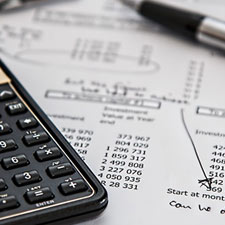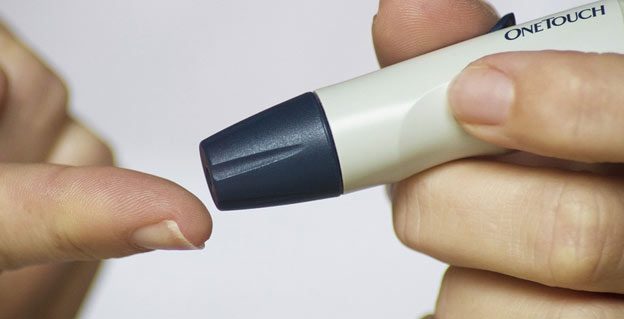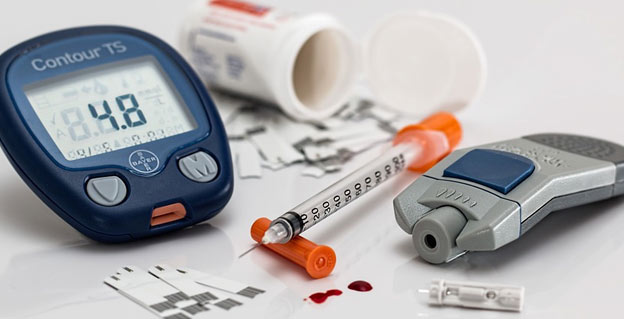 Living with diabetes is challenging for a number of reasons. When you get that life-changing diagnosis, it can be more than just a tad stressful. For one thing, you will have to change your entire lifestyle. What’s more, it’s crucial to find a diet program that works for diabetics. Needless to say, it’s a whole load of work and an extra level of worry which no one particularly wants to deal with. Still, it’s not as though you have a choice.
Living with diabetes is challenging for a number of reasons. When you get that life-changing diagnosis, it can be more than just a tad stressful. For one thing, you will have to change your entire lifestyle. What’s more, it’s crucial to find a diet program that works for diabetics. Needless to say, it’s a whole load of work and an extra level of worry which no one particularly wants to deal with. Still, it’s not as though you have a choice.
As if that wasn’t enough, there’s the actual cost of having diabetes. It’s essential that you get the medical help that you need once you’ve had the diagnosis. Sadly, that does not come all that cheap! Paying for that extra medical care is seriously expensive. From your health insurance to regular checkups, all those little fees can soon add up. Before you know it, you could be drowning in a sea of expenses all because you happen to be a diabetic.
So, is there a silver lining here? Well, you might not know this, but you are actually entitled to a wealth of tax deductions when you have diabetes. It’s important that you educate yourself on what’s available to you. In the long run, this could save you a whole load of money which can realistically only be a good thing. When you’re finding it hard to cope with the mounting cost of your medical condition, having these small deductions may just make all the difference.
Diabetes: Which expenses are actually deductible?
So, first of all, you need to know what expenses are actually deductible. In short, you can claim for expenses that relate to your diabetes so long as they exceed a certain limit.
So, what expenses are a tax deduction? Fees relating to your condition may include the cost of your medication, your insulin, blood sugar monitoring kits, glucose tabs, diabetic shoes & orthotics, and doctors visits (and qualifying transportation costs). It’s well worth checking out what this deduction system covers before you go ahead and make a claim.
When it comes to health insurance, you can claim for the premiums that you have to pay on your fees. However, it’s important that you understand that you may not claim for premiums that are either paid by the government or your employer.
Claiming Diabetes Expenses & Taxes: Know Your AGI
To get deductions the minimum amount of your medical expenses has to exceed 10% of your Adjusted Gross Income (AGI). As its name suggests, the AGI is not the same as your taxable income. Instead, it is an income amount that it adjusted according to specific fees, such as your student loans. You can find your AGI on the very first page of your tax return sheet (or use an AGI calculator online).
Once you know that that figure is, it shouldn’t be all that tricky to work out how much you can claim. Let’s say your AGI figure is $30,000. That means that you can claim deductions on any fee relating to your diabetes that exceeds $3,000.
If you do itemize, use form 1040 to file and attach Schedule A
- On Schedule A, report your total medical expenses on line 1
- Report your adjusted gross income (from line 38 of Form 1040) on line 2
- Enter 10% of your Adjusted gross income on line 3
- Enter the difference between your total expenses and 10% of your AGI on line 4
- The amount on line 4 will be subtracted from your adjusted gross income, which will reduce your taxable income
*If this amount (together with other standard deductions that you claim) is less than your standard deduction, you shouldn’t itemize.
If you keep that in mind, you should have absolutely no problem when it comes to making an official claim. Remember, this is a discount that you’re entitled to, and so there is no reason to miss out on it!
*Please note: If you or your spouse were older than 65 between January 1st 2013 and December 31st 2016, you may be eligible to claim for amounts that exceed 7.5% of your AGI, rather than the standard 10%.
Diabetes Claims: Itemize Your Expenses
 If you think that you can make a claim, you will need to itemize your expenses on the Schedule A attachment to your Form 1040. There you will be able to pop your AGI and your total amount of fees paid within the given tax year. You should make sure that you include all the fees whether they exceed the 10% limit or not.
If you think that you can make a claim, you will need to itemize your expenses on the Schedule A attachment to your Form 1040. There you will be able to pop your AGI and your total amount of fees paid within the given tax year. You should make sure that you include all the fees whether they exceed the 10% limit or not.
You will then have to find 10% (or 7.5% if you are eligible for that!) of your AGI. You can do so by multiplying your AGI by 0.1. You will then need to subtract the result from your total fees. The amount that you have left will be the figure on which you are legally allowed to claim. You can then make your claim on the form.
Keep Good Records of Medical Expenses
Of course, before you make your claim, it’s crucial that you keep proper records of your medical expenses. You may be expected to provide proof of your claim, which means that you might have to present receipts or invoices for each of the fees that you have listed.
You should make sure that you keep proper records of the things you have to pay for which are directly connected to your Type 2 diabetes diagnosis. Doing so will only make things much easier in the long run and you could realistically save yourself a whole load of money.
*If you have your taxes done professionally, mention that you are diabetic to your CPA or tax professional, and they can advise you on medical expenses and potential tax deductions. If you prepare and file your own taxes, software like TurboTax (coupon codes) or H&R Block (coupon codes) will guide you through claiming medical expenses. Some diets, like Nutrisystem D, have specific plans for diabetics, so if prescribed by a doctor, they may be claimed as a tax deduction.


